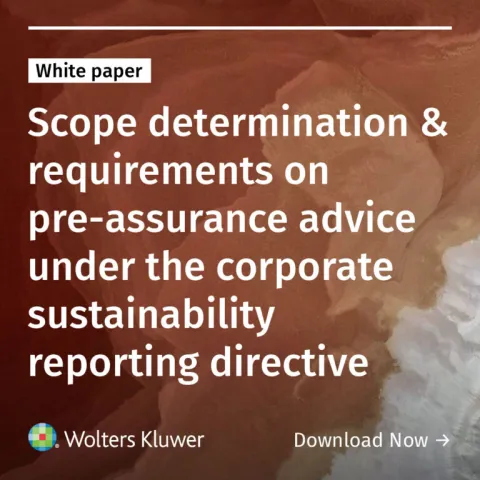The Real Cost of Ignoring Costs in International Arbitration Awards – A View From South Africa
November 3, 2025
Finality is a cornerstone of arbitral awards, and cost orders are a critical part of that finality – including in South Africa.
Arbitration costs can be substantial – in fact, legal fees often make up more than 80% of the total arbitration expenses. Given the high stakes, allocating and quantifying these costs is an essential part of delivering justice in arbitration, and most leading arbitral rules and laws require or expect arbitrators to address costs in the final award.
Yet a custom persists in local practice which does not appear to be aligned with international best practice. Many arbitrators in South Africa issue awards on the merits and liability but leave the quantification of costs to be decided later (often by an unidentified third party, such as a court-appointed taxing master or “cost consultant”).
This article discusses why arbitrators should deal with the quantification of costs in the award itself, examines the risks of deferring cost decisions, and outlines best practices and recommendations to ensure arbitral awards are truly final and enforceable.
The South African Context
South African domestic arbitrations are governed by the Arbitration Act 42 of 1965 (“Domestic Act”); the Domestic Act has not been updated in many years and does not reflect international best practice. On the other hand, international arbitrations in South Africa are governed by the International Arbitration Act 15 of 2017 (“IAA”) which incorporates the UNCITRAL Model Law.
Pursuant to the promulgation of the IAA, South Africa's leading arbitral institution, the Arbitration Foundation of Southern Africa (“AFSA”) also published its International Rules, which reflect best practice in international arbitrations.
In South Africa’s domestic arbitration practice, there has been a historical tendency – rooted in the Domestic Act – to leave the detailed assessment of costs to a court-affiliated taxing master. Section 35(1) of the Domestic Act gives the arbitrator broad discretion in awarding costs and directs that if costs are awarded, the arbitrator:
- shall give directions as to the "scale" on which the costs are to be "taxed";
- may award costs as between "attorney and client" (which is one of the "scales" referred to above);
- may direct to and by whom and in what manner the costs shall be paid; and
- may tax or settle the amount of the costs, or any part thereof themselves.
The reference to the "scale" and "taxation" of costs is a reference to the scale of costs recoverable under the rules of the High Court (which should generally find no application in arbitrations, unless parties have expressly agreed to those rules).
In practice, South African arbitrators often issue award stating, for example, “Party A shall pay Party B’s costs of the arbitration on (one or other) High Court scale,” and then leave it to the parties to appoint a cost consultant, or taxing master at the court, to quantify those costs after the award. Doing so does not impact the finality of a domestic award, in light of Section 35 of the Domestic Act.
The wording of Section 35 of the Domestic Act is not repeated in the IAA.
Why Quantifying Costs in the Award Matters in International Arbitrations
A key reason to quantify costs in the award itself, in international arbitrations, is to uphold the “final and binding” nature of awards as required by the 1958 New York Convention on Recognition and Enforcement of Foreign Arbitral Awards. An award that decides all issues, including the allocation and amount of costs, is final. Conversely, an award leaving costs open-ended may be deemed not “binding” under Article V(1)(e) of the New York Convention, a provision that allows refusal of enforcement if the award is not final. Even if ultimately enforceable (for example, after the costs are later quantified), the creditor faces delay in justice.
The AFSA International Rules 2021 were designed to avoid such pitfalls by ensuring arbitrators handle costs within the arbitration process itself. Under the AFSA International Rules, introduced in 2021, the tribunal has a broad discretion to award costs and is expected to allocate them in the award to ensure a comprehensive resolution. This aligns with rules of other major institutions: for example, Article 38 of the ICC Rules mandates that the final award “shall fix the costs of the arbitration” and "decide which of the parties shall bear them or in what proportion". Similar obligations exist in the LCIA and UNCITRAL Arbitration Rules. The intent across these frameworks is the same – the award should be complete and leave no issue (including costs) unresolved.
While legally permissible under the Domestic Act, the South African approach to leaving the quantification of costs for later determination by an unidentified third party is problematic in international arbitrations.
A taxing master or cost consultant plays no role under modern international arbitration frameworks – involving them effectively drags a national court into the arbitration process, undermining the parties' autonomy. They are not party to the arbitration agreement and are not bound by the confidentiality that would bond all parties to the proceedings.
If an arbitrator ignores or postpones the issue of costs in an international arbitration, several negative consequences may arise:
- Delay and additional proceedings: “Winning” your arbitration may not be the end if costs aren’t fixed. The parties will likely have to initiate a separate process to quantify recoverable costs – for example, applying to a court or appointing a cost referee. This undermines arbitration’s efficiency and can add many months to the timeline. In any event, the person best placed to decide what is reasonable (from a costs perspective) is the arbitrator.
- Increased expense: Ironically, trying to recover your costs will increase costs. Engaging cost consultants or lawyers to partake in a taxation process, after the award has been issued, incurs further fees. Both sides may spend additional resources arguing what costs are reasonable under the relevant scale, thus inflating the overall cost of dispute resolution beyond the arbitration itself. This erodes one of arbitration’s touted benefits – cost-effectiveness.
- Enforcement challenges: The gravest risk is the challenge to the enforcement of the award, as discussed above.
- Undermining the arbitrator’s authority: Parties appoint arbitrators to decide all issues between them. Failing to decide on costs (or at least the method and amount clearly) might be seen as the tribunal abdicating part of its responsibility. This can hurt the credibility of both the arbitrator and the process and could invite challenges or complaints against the arbitrator for not fulfilling the mandate.
- Costs: It is a well-known fact that the tariffs used in South African High Court litigation are far from an accurate reflection of reasonable costs incurred. Usually, a successful party only recovers 20-30% of their actual legal costs. Importantly, the High Court scales are modelled on a process which follows the High Court procedure. International arbitrations do not follow the same procedure and are not subject to the same tariffs. Arbitrators are empowered (we submit, obliged) to issue a cost award which is reflective of costs reasonably incurred.
Best Practices for Arbitrators in International Arbitrations
To prevent these issues, arbitrators should adopt a clear process to handle costs within the arbitration. Considerations should include:
- Quantify all costs in the final award: Don’t just order “Party A pays Party B’s costs” – actually state the amount or provide a mechanism to calculate it. Arbitrators should ensure that recoverable costs are fully addressed and incorporated in the final award. This means that by the time the award is issued, the tribunal has received cost submissions from the parties (itemized bills or schedules of costs) and has deliberated on them. The final award should specify, for example, “Party A shall pay Party B $X in respect of Party B’s legal costs, and $Y in respect of the arbitrators’ fees and administrative costs, totalling $Z.” The important thing is not to leave the substantive quantification to an outside process.
- Provide reasoning for cost decisions: Arbitrators should explain why they awarded costs in a certain way. A short section in the award can outline, for example, that Party A prevailed on the majority of the claims and thus the tribunal awards Party A 80% of its reasonable legal costs, or that Party B’s conduct increased the costs (through dilatory tactics) justifying a certain apportionment. Transparency in the cost award bolsters the legitimacy and enforceability of the decision.
- Avoid delegating cost quantification to national bodies or third parties:The arbitration should not bounce a key issue to another forum. This practice is inappropriate in international arbitration governed by modern rules. The tribunal’s mandate from the parties (especially under AFSA or ICC/LCIA rules) includes deciding costs; delegating that function is arguably beyond the tribunal’s authority and certainly undermines the award’s completeness. If an arbitrator feels unable to handle the often tedious work of assessing costs, the arbitrator can request the parties to agree on costs or appoint an expert within the arbitration to advise– but the final decision must still be the tribunal’s and be part of the award. Preserving the arbitration as a one-stop process is crucial.
- Consider partial awards for specific cost issues if necessary: In some scenarios, issues with costs may arise before the final award – for instance, one party may fail to pay its share of the advance arbitration fees. In such cases, arbitrators can issue an interim or partial award to address that specific cost matter rather than waiting until the very end.
By adhering to these practices, arbitrators reinforce the finality, clarity, and enforceability of their awards. Notably, the AFSA International Rules themselves encourage efficiency and completeness – an arbitrator who follows these guidelines will be in line with both the letter and spirit of those rules (as well as ICC, LCIA and UNCITRAL norms).
Conclusion
For international arbitration to maintain its reputation for efficiency, certainty, and finality, tribunals must not ignore the issue of costs. In the South African context, with AFSA’s modern international rules now in play, there is every expectation that arbitrators will quantify and allocate costs as part of their awards, rather than reverting to older practices of offloading that task. Arbitrators therefore should conscientiously fulfil their duty to render comprehensive awards that leave no loose ends.
Parties, on their side, should make their expectations clear and provide arbitrators the means to decide costs efficiently. If both arbitrators and parties collaborate in treating cost determinations with the importance they deserve, the “real cost of ignoring costs” can be avoided.
You may also like











